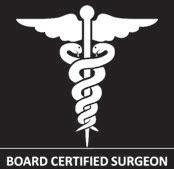With over 25 years experience, our Senior Advocates hold your hand through the entire process from start to finish. Finding the best housing solutions based on clinical, financial and cognitive needs.
Our team of specialists have 15+ years experience and are well versed in preparing and expediting the Medicaid application process. Our team has a 100 % guaranteed approval rate.

Our experienced specialists assist with:


















AUGUST 9–15, 2023 ‘ AN ANTON MEDIA GROUP SPECIAL IMMUNIZATIONS Diabetes Sun Protection FRIENDS FOR LIFE "AFFORDABLE RATES, WITHOUT SACRIFICING THE QUALITY OF CARE"
For Life makes it possible for seniors to live in their own home. You can depend on us. We’ve been proudly making lives better in New York for the past 14 years and counting. -Hourly and Live In Care -Alzheimer's and Dementia Care -Companion Care -Overnight Supervision -Medication Reminders -Weekend and Holiday Care (516) 900-1818 (631) 485-5574 SENIOR LIVING ADVISORS MEDICAID CONSULTANTS HOMECARE SERVICES www.friendsforlifeny.com Serving Nassau, Suffolk, & The Five Boroughs
Friends
- Memory Care Communities - Hospice Care
-
We offer a variety of senior living options: -Assisted Living -Independent Living
Facilities
Adult Homes and more.
-Eligibility
-Pooled
Application -Asset Protection -Community and Nursing Home Medicaid -Assisted Living Program (ALP) 242123 M
& Application Filing
Income Trust
St. Francis Hospital & Heart Center®… nationally ranked in 8 adult specialties



















St. Francis Hospital & Heart Center® is nationally recognized by U.S. News & World Report in eight adult specialties, the most ever. With exceptional physicians and unrivaled patient experience, St. Francis Hospital & Heart Center® is nationally recognized for Heart & Vascular for the 16th consecutive year.
(866) MY-LI-DOC | chsli.org/st-francis-hospital
2B AUGUST 9 - 15, 2023 • GOOD HEALTH ‘23
241196 M
Check Your Titers
You need vaccines throughout your life. Adults need to keep their vaccinations up to date because immunity from childhood vaccines can wear off over time. It is important to have your titers checked annually during your annual doctor’s visit.

A titer test is a blood test that detects the presence and levels of certain antibodies in an individual’s blood stream. The test is often done to determine if the individual is immune to a certain virus or if they require a vaccination to increase their immunity. You may already have immunity to the virus that is being tested due to previous vaccinations or if you had contracted the disease in the past.
If a titer test reveals that your antibody count is lower than the acceptable immunity threshold, you may require a vaccine or booster to increase your immunity to that virus.
You are also at risk for different diseases as an adult. Vaccination is one of the most convenient and safest preventive care measures available.
All adults should get:
• Flu vaccine every year to protect against seasonal flu
• Td/Tdap to protect against tetanus, diphtheria, and pertussis (whooping cough)
Based on your age, health conditions, vaccines you received as a child, and other factors, you may need additional vaccines such as:
• Chickenpox
• Hepatitis A
• Hepatitis B
• Human Papillomavirus (HPV)
• MMR
• Meningococcal
• Pneumococcal
• Shingles
3 Reasons For Adults to Get Vaccinated
1. You may be at risk for serious diseases that are still common in the U.S. Each year thousands of adults in the United States get sick from diseases that could be prevented by vaccines — some people are hospitalized, and some even die.
Even if you got all your vaccines as a child, the protection from some vaccines can wear off over time. You may also be at risk for other diseases due to your age, job, lifestyle, travel, or health conditions.
2. You can’t afford to risk getting sick. Even healthy people can get sick enough to miss work or school. If you’re sick, you may not be able to take care of your family or other responsibilities.
3. You can protect your health and the
health of those around you by getting the recommended vaccines.
Vaccines lower your chance of getting sick. Vaccines work with your body’s natural defenses to lower the chances of
getting certain diseases as well as suffering complications from these diseases.
Vaccines lower your chance of spreading certain diseases. There are many things you want to pass on to your loved ones; a vaccine
preventable disease is not one of them.
Infants, older adults, and people with weakened immune systems (like those undergoing cancer treatment) are especially vulnerable to vaccine preventable diseases.
Vaccines are one of the safest ways to protect your health. Vaccine side effects are usually mild and go away on their own. Severe side effects are very rare.
Getting Vaccinated
There are vaccines you need as an adult Cohen Rated Best On Long Island
Cohen Children’s Medical Center has been rated the best children’s hospital on Long Island—and second highest in New York State—while earning top 50 national rankings for exceptional care in eight pediatric specialties, according to U.S. News & World Report’s 2023-2024 Best Children’s Hospitals.
In addition, Cohen Children’s achieved the highest rankings in New York in the areas of pediatric nephrology, pulmonology and urology.
U.S. News has ranked Cohen Children’s among the nation’s top pediatric hospitals for the 17th consecutive year. The Northwell Health children’s hospital also serves as New York’s largest Level 1 pediatric trauma center and a primary destination for emergency care.
Cohen Children’s achieved top 50 national rankings in eight pediatric disciplines:
• Nephrology-tied for 20th in the nation
• Cancer-ranked 25th in the nation
• Pediatric pulmonology/lung surgery-ranked 25th in the nation
• Pediatric urology-ranked 25th in the nation
• Neurology/neurosurgery-ranked 27th in
the nation
• Neonatology-tied for 27th in the nation
• Pediatric Diabetes and Endocrinologytied for 34th in the nation
• Gastroenterology and GI Surgery-49th in the nation
“Once again, Cohen Children’s Medical Center has achieved high rankings for the groundbreaking work being done by our team members in a variety of specialties,” said Michael Dowling, president and CEO of Northwell Health. “We understand how stressful a hospital stay can be—not only for

Adults can get vaccines at doctors’ offices, pharmacies, workplaces, community health clinics, health departments, and other locations. To find a vaccine provider near you, go to www.vaccine.healthmap.org.
Most health insurance plans cover the cost of recommended vaccines. Check with your insurance provider for details and for a list of vaccine providers. If you do not have health insurance, visit www. healthcare.gov to learn more about health coverage options.
Talk with your healthcare professional to make sure you are up to date with the vaccines recommended for you. For more information on vaccines, visit www.cdc.gov/vaccines/adults or use the AdultVaccine Assessment Tool at www2. cdc.gov/nip/adultimmsched/ to find out which vaccines you may need.
—Centers for Disease Control and Prevention (CDC)
our young patients but for their families. For this reason, every member of this hospital’s staff works together to provide a comforting and healing environment for the children and the people who love them.”
Not only did Cohen Children’s rank No. 2 in New York, it also ranked in the top 10 in the mid-Atlantic region, which includes Delaware, the District of Columbia, Maryland, New Jersey, New York, Pennsylvania, Virginia and West Virginia.
“We are very honored to receive these latest rankings,” said Charles Schleien, MD, MBA, senior vice president and chair of pediatric services at Northwell Health, and the Philip Lanzkowsky Chair and Professor of Pediatrics at the Zucker School of Medicine at Hofstra/Northwell. “We continue to be inspired by our mission of providing stateof-the-art medical care to all of our patients in an environment of dignity and respect.”
To view U.S. News & World Report’s “Best Children’s Hospital’s” edition, go to: https://health.usnews.com/best-hospitals/ pediatric-rankings
—Cohen Children’s Medical Center
3B GOOD HEALTH ‘23 • AUGUST 9 - 15, 2023
COVER STORY
Adults need to keep their vaccinations up to date.
(Photo courtesy CDC)
The hospital achieved national rankings. Cohen Children’s Hospital
Storing Fat Around The Waist May Not Up Your Diabetes Risk

Conventional wisdom holds that storing fat around your belly puts you at increased risk for type 2 diabetes. But surprising new findings from the University of Virginia School of Medicine suggest that naturally occurring variations in our genes can lead some people to store fat at the waist but also protect them from diabetes.
The unexpected discovery provides a more nuanced view of the role of obesity in diabetes and related health conditions. It also could pave the way for more personalized medicine—treatments tailored to the individual. For example, doctors might prioritize weight loss for patients whose genes put them at increased risk but place less emphasis on it for patients with protective gene variants, the researchers say.

“There is a growing body of evidence for metabolically healthy obesity. In this condition, people who would normally be at risk for cardiovascular diseases and diabetes because they are obese are actually protected from adverse effects of their obesity. In our study, we found a genetic link that may explain how this occurs in certain individuals,” said researcher Mete Civelek, PhD, of UVA’s Center for Public Health Genomics. “Understanding various forms of obesity is
important to tailor treatments for individuals who are at high risk for adverse effects of obesity.”

Abdominal Fat and Good Health


As medicine grows more sophisticated, understanding the role of naturally occurring gene variations will play an important role in ensuring patients get the best, most tailored treatments. The new work by Civelek and his team, for example, indicates that variants can simultaneously predispose some people to store fat at the abdomen— thought to put them at increased risk for a cluster of health problems called metabolic syndrome—while also protecting them from type 2 diabetes. (Metabolic syndrome raises the risk for diabetes, stroke and other
serious health issues.)
One of the metrics doctors use to determine if a patient has metabolic syndrome is abdominal obesity. This is often calculated by comparing the patient’s waist and hip measurements. But Civelek’s research suggest that, for at least some patients, it may not be that simple. In the future, doctors may want to check a patient’s genes to determine how to best guide the person down the road to good health.
and School of Engineering. “To our surprise, these five regions decrease an individual’s risk for type 2 diabetes.”
patients,
“We found that among the hundreds of regions in our genomes which increase our propensity to accumulate excess fat in our abdomens, there are five which have an unexpected role,” said Yonathan Aberra, the lead author of the study and a PhD candidate at UVA’s Department of Biomedical Engineering, a joint program of the School of Medicine
In addition to producing surprising findings, Civelek’s research provides important new tools for his fellow researchers seeking to understand the complexities of gene variations. The sophisticated approach Civelek and his collaborators developed to identify the relevant variants and their potential effects will be useful for future research into metabolic syndrome and other conditions.
The tools could also prove invaluable in the development of new and better treatments for metabolic syndrome, the scientists say.

“We now need to expand our studies in more women and people from different genetic ancestries to identify even more genes that underlie the metabolically health obesity phenomenon,” Civelek said. “We plan to build on our findings to perform more experiments to potentially identify a therapeutic target.”












To keep up with the latest medical research news from UVA, subscribe to the Making of Medicine blog at www.makingofmedicine.virginia.edu. —University


4B AUGUST 9 - 15, 2023 • GOOD HEALTH ‘23
of Virginia School of Medicine (UVA)
Everything in moderation. (Photo courtesy UVA) 242068 M Bathroom Safety Bars Call, Before You Fall! Grab Bar Specialists YOUR INDEPENDENCE IS PRICELESS! CALL TODAY - 631.923.6502 Safebathli.com Local Family Owned & Operated Includes 2 Stainless Steel Anti-Slip Concealed Screw Grab Bars (up to 24”) Drilling charges apply for Marble, Granite or Porcelain COMPLETE INSTALLATION PACKAGE MANY COLORS AND SIZE OPTIONS AVAILABLE GOOD FOR 2023 The Leader in Ba thtub Modications




















5B GOOD HEALTH ‘23 • AUGUST 9 - 15, 2023 239025 M TO GIVE THEM THE BEST THEY GAVE YOU THE BEST NOW IT’S YOUR CHANCE Short Term Rehabilitation | Long Term Care | Home Health Care | Hospice | Palliative Care Inpatient And Outpatient Dialysis | Medical House Calls | Managed Long Term Care | Medicare Advantage Plan PARKER CARE. THE BEST. FOR THE BEST. 271-11 76th Avenue New Hyde Park, NY 11040 | 877-727-5373 | parkerinstitute.org 239357 M Post-Acute Care | Sub-Acute Care | Short-Term Rehabilitation | Long Term Care | Hospice | Palliative Care Inpatient/Outpatient Dialysis | Home Health Care | Medical House Calls | Senior Care Management Medicaid Advantage Plus Plan | Medicare Advantage Plan
Teach Your Kids About Sun Protection
BY CATHY CAVENDER specialsections@antonmediagroup.com

Parents have the power to instill many health life lessons in their children, such as brush their teeth twice a day, eat their veggies, always buckle up and never smoke. One more vital action to add to these basics: protect their skin from the sun. Research has shown that 90 percent of the two most common types of skin cancer, basal cell carcinoma (BCC) and squamous cell carcinoma (SCC), are associated with ultraviolet (UV) exposure, and they can be serious and disfiguring. Just one blistering sunburn in childhood or adolescence more than doubles a person’s chances of developing melanoma, which has a higher chance of spreading than other types of skin cancer. Indoor tanning increases the risk of all three main types of skin cancers. Getting kids into the habit of daily sun protection, including sunscreen, clothing and seeking shade, helps ensure that they’ll practice it for the rest of their lives. And the best time to start is right at the start.
Newborns to Six Months
The challenges: You’ll never encounter less resistance to sun-protective measures from your child than you will at this stage of life. Enjoy it! Challenges may come from outside pressures—going on an annual family beach vacation, for instance, or






attending outdoor events.

Avoid it: The consensus of our experts is clear: Babies need to be kept out of the sun, period. Dermatologists also advise against using sunscreen on babies under six months due to their delicate skin.
Keep them covered: If infants must be outside during the peak sun hours of 10 a.m. to 4 p.m., use everything in your arsenal to protect them: Look for shade, use stroller awnings, and provide physical protection including a hat, sunglasses and sun-protective clothing.
Instruct (and remind) caregivers, too: Babysitters, day-care providers and family may mean well, but don’t assume they’re following your rules. Be a clear and consistent enforcer.
Model good behavior: Lay the groundwork for a lifetime of sun safety by wearing sunscreen and taking other sun-protective measures yourself daily. They’re watching, and it’s never too early to set a good example.
Toddlers to Tweens
The challenges: At this age, kids can be squirmy or downright resistant when you try to apply sunscreen. It’s often a battle of wills. If kids are in outdoor activities at day care, preschool or camp, caregivers may not be as vigilant about reapplying sunscreen as you would like.
What does it take to go from fear to hope, faster than you thought possible?
Through Rapid Diagnosis, MSK helped Kieran get biopsied, diagnosed, and started on his cancer treatment, all within 10 days of his first appointment. “It felt like MSK’s main goal was to get me better as fast as possible. You could tell that they cared.”
6B AUGUST 9 - 15, 2023 • GOOD HEALTH ‘23
Because where you’re treated first matters.
MSK.org/MSKRapidDiagnosis 888-503-9205 Kieran
Diagnosed and treated for
©2023 Memorial Sloan Kettering Cancer Center. All rights reserved. S:9.5" S:5" T:10" T:5.5" 240051 M
H.
lymphoma
Establish habits: At six months, it’s time to apply sunscreen to babies’ exposed skin. Fragrance-free “physical” sunscreens, with mineral active ingredients zinc oxide and titanium dioxide, are least likely to cause a reaction in sensitive skin. Keep up with covering up, too. Introduce cool rash guards with ultraviolet sun protection (UPF), hats, sunglasses—and seek shade when available. Get them involved: Toddlers like to feel in control, so give them choices and let them help in the application process. Little hands can grip a sunscreen stick. While sunscreen spray is fun, make sure to avoid inhaling by spraying it into their hands and letting them rub it in.


Make it fun: Children can be squirmy. To get the job done, master the art of distraction. Sing songs, create easy-to-remember mantras.
“I like to say, ‘If you can see, then there’s UV!,’” said Elizabeth Buzney, MD, a dermatologist at Brigham and Women’s Health in Boston and Chestnut Hill, Massachusetts.






“Teach your child that UV stands for ultraviolet light from the sun and that you need to protect the skin from it during the daylight hours.” You can even add a few drops of food coloring or superfine glitter to make sunscreen more exciting for little ones.
Enlist help: Talk to a director at your child’s day care, school, camp or athletic facility to ensure they can enforce sunscreen application. Ask if they have shade or shade structures to provide some relief from the sun during peak hours. You may have to be proactive.

Teenagers
The challenges: Unfortunately, the i dea that tanning is attractive still has a deep hold and can be tough for even a committed parent to combat. And it’s not just peers who may be pressuring teens to tan. More people develop skin cancer from indoor tanning than develop lung cancer from smoking. No wonder the practice is banned in Australia and Brazil, and it is outlawed for people under 18 in 11 other countries and 20 states (plus Washington, D.C.).
Boys can feel pressured to tan as well. “My son was told at sleepaway camp that he looked good when he was tan,” said Amy Wechsler, MD, a New York City dermatologist and psychiatrist. Teens of both sexes (and adults) who are into outdoor sports have the challenge of keeping exposed skin protected for hours at a time.
Make sun care part of skin care: Use a teenager’s natural interest in their appearance to make the case for sun protection. Many skin-care products and cosmetics contain broad-spectrum sunscreen, and it’s a good way to motivate them to wear sunscreen daily. Cute rash guards, cover-ups, sunglasses and widebrimmed hats are also easy and fashionable ways to sneak in sun protection.
Be direct: Have an honest conversation about the dangers of tanning—and that there’s no such thing as a “healthy tan.” If your teen burns, push harder on the need

for UPF clothing, hats, sunglasses and shade.

Get real about social media: Remind your teen that social media is full of retouched images, skin-enhancing filters and dangerous misinformation. Suggest board-certified dermatologists your teens can follow for accurate info.

Fake it: A self-tanner is an option if teens insist on tan skin for a special event. Just make sure they still cover up and use sunscreen; a faux glow won’t protect.
“I tell my patients to get it before the beach vacation, so they don’t feel the need to sit out in the sun to get a tan,” Dr. Buzney said, while reminding them that a fake tan provides minimal protection from UV rays. Sunscreen is still a must.
Bottom line: Since people acquire approximately 25 percent of their lifetime UV damage before age 18, you can’t start teaching kids about sun protection too soon.


“When I was growing up, my parents felt very strongly about not smoking and always wearing a seatbelt in a car, and I’ve never smoked and never not worn a seatbelt,” said Dr. Wechsler. “With my kids, I added helmets for biking and skiing—and sun protection.” Chances are, those are lessons her kids will take to heart.
Visit www.skincancer.org for mo re information.
—Cathy Cavender writes for the Skin Cancer Foundation.
7B GOOD HEALTH ‘23 • AUGUST 9 - 15, 2023
Getting kids on board early with sun protection is crucial — but it isn’t always easy. Our expert dermatologists share their best practices to make sun care a daily habit at every age. The Skin Cancer Foundation 241733 M COMPLIMENTARY WATER TEST and CONSULTATION 516-801-0191 www.BetterWaterNY.com 61A GLEN HEAD ROAD GLEN HEAD YOU AND YOUR FAMILY DESERVE BETTER WATER. We Will Customize A State of the Art Filtration System Specifically For Your Home And/or Business We provide peace of mind knowing that your family’s health is protected. Say goodbye to the worries of contaminated water and hello to safe, clean water in your home or business. RESIDENTIAL & COMMERCIAL WATER FILTRATION Enjoy The Cleanest Safest Water You Can Get











AUGUST 9 - 15, 2023 • GOOD HEALTH ‘23
announces the relocation of his new state of the art Specializing in Minimally Invasive Vein Treatments Including: • Laser & Radiofrequency ablations • Chemical ablations of large unsightly varicose veins • Sclerotherapy treatments of spider veins Over 30 years experience in the diagnosis and treatment of: • Abdominal Aortic Aneurysms • Carotid Artery Disease • Peripheral Artery Disease of the Lower Extremities NEW OFFICE 1 School Street, Suite 205, Glen Cove (Ample parking in rear) (516) 759-5559 VitaleVeinAndVascular.com VITALE VEIN & VASCULAR CENTER 241964 M Most Insurances Accepted
Vascular Surgeon Dr. Gerard Vitale


















































































